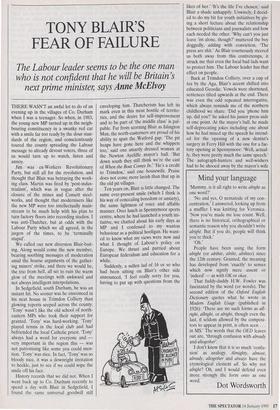Mind your language
`Mummy, is it all right to write alright as one word?'
`No and yes, 0 nematode of my con- centration,' I answered, looking up from a muffler I was knitting for Veronica. `Now you've made me lose count. Well, there is no historical, orthographical or semantic reason why you shouldn't write alright. But if you do, people will think you're thick.'
`Oh.'
People have been using the form alright (or abihte, alriht, alrihtes) since the 12th century. Granted, the meaning has developed from `exactly' to senses which now signify mere assent or `indeed' — as with OK or okay.
That fuddy-duddy H.W. Fowler was fascinated by the word (or words). The second edition of the Oxford English Dictionary quotes what he wrote in Modern English Usage (published in 1926): `There are no such forms as all- right, alight, or alright, though even the last, if seldom allowed by the composi- tors to appear in print, is often seen . . . in MS.' The words that the OED leaves out are, `through confusion with already and altogether'.
I don't know that it is so much `confu- sion' as analogy. Almighty, almost, already, altogether and always have the etymological element all. So why not alright? Oh, and I would defend even more strongly the form onto as one word.
Dot Wordsworth









































 Previous page
Previous page